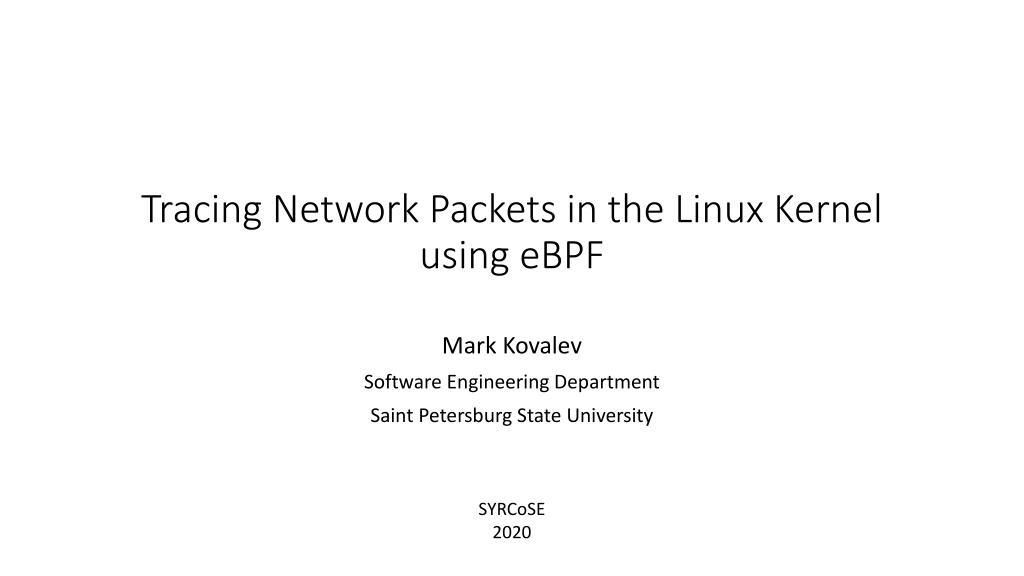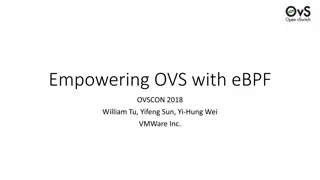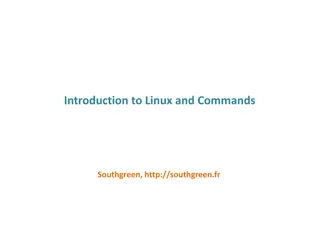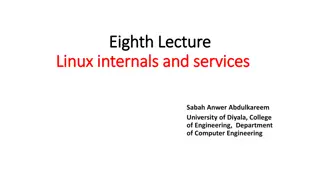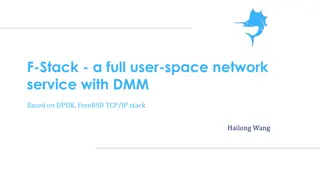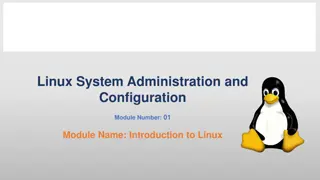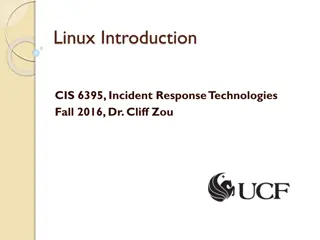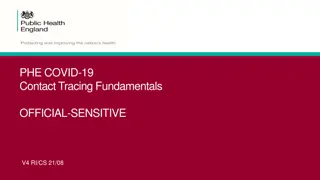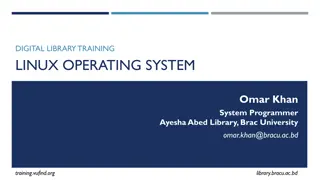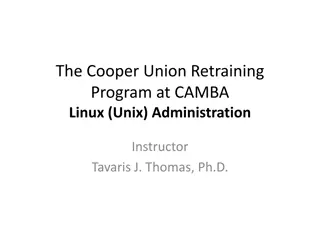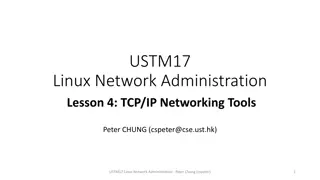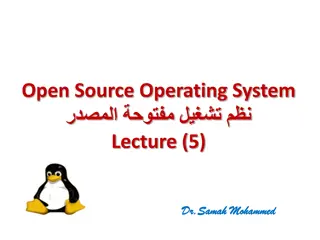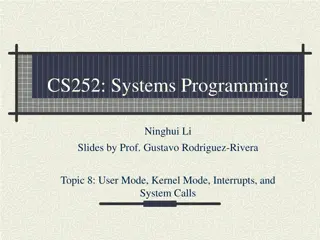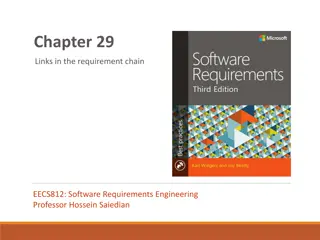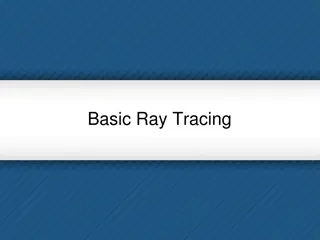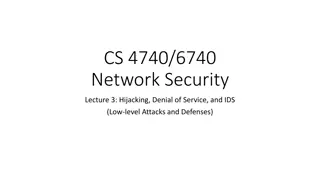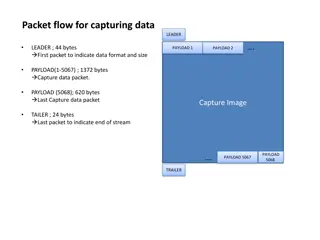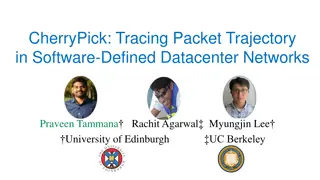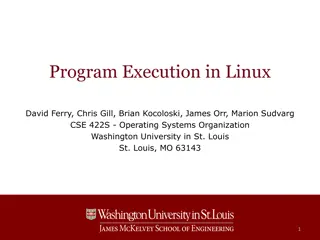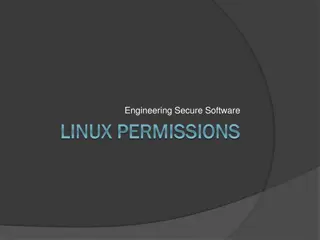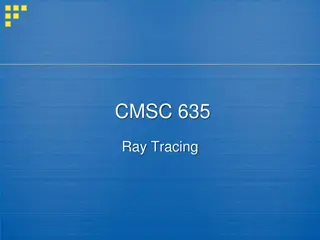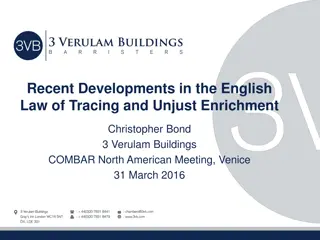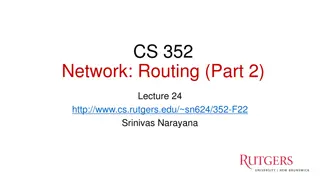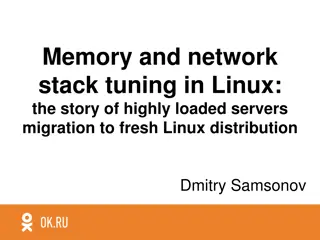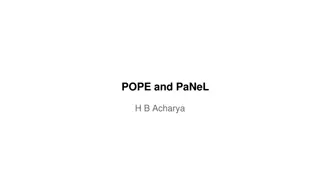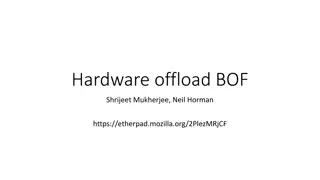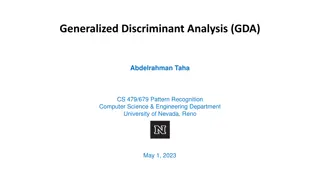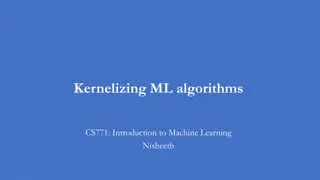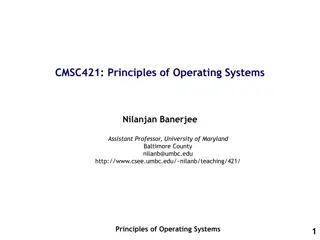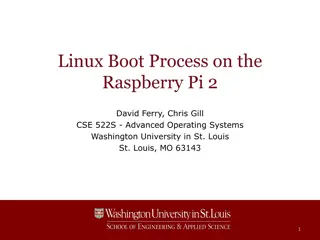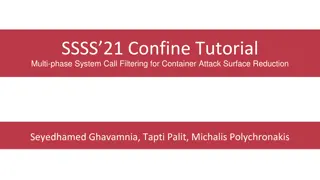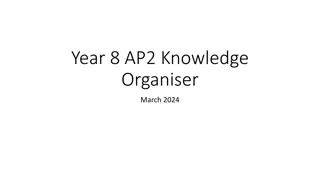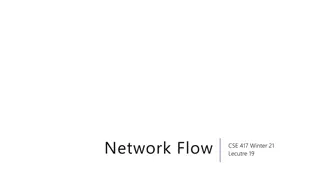Tracing Network Packets in Linux Kernel with eBPF
This presentation discusses the challenges of troubleshooting modern networking systems and proposes a solution using eBPF technology to trace the path of network packets in the Linux kernel. The goal is to develop a tool that provides detailed information about how network packets are processed in the kernel, enhancing troubleshooting efficiency and effectiveness.
Download Presentation

Please find below an Image/Link to download the presentation.
The content on the website is provided AS IS for your information and personal use only. It may not be sold, licensed, or shared on other websites without obtaining consent from the author. Download presentation by click this link. If you encounter any issues during the download, it is possible that the publisher has removed the file from their server.
E N D
Presentation Transcript
Tracing Network Packets in the Linux Kernel using eBPF Mark Kovalev Software Engineering Department Saint Petersburg State University SYRCoSE 2020
Problem Modern networking systems troubleshooting is a complex process Problems arise even within individual nodes Exclusion method debugging => high cost of the troubleshooting Kernel code analysis as a last resort How a certain traffic is processed by the network stack? What part of the network stack could posses a source of the malfunction? 2/13
Proposed solution Obtain the information about network packet path in the kernel Determine, where its processing scenario derivates from intended Narrow down the scope of the troubleshooting to the certain subsystem Apply appropriate tools and find the problem cause Network packet path == call order of the kernel functions that participate in the network packet processing 3/13
Goal Develop the tool that provides information about the network packet path in the Linux kernel using eBPF technology Easy to use Performant Thorough information Network traffic filter Path of the packet stdin stdout Tool 4/13
eBPF (extended Berkeley Packet Filter) Extension of the BPF technology libpcap, tcpdump, seccomp-bpf, xt_bpf for iptables, cls_act for Traffic Control In-kernel virtual machine with ten 64-bit registers and optimized instruction set Various attachment points for programs: Traffic Control classifiers, kernel probes, tracepoints, perf events, sockets Static verification and isolated execution Programs are loaded into the running kernel Stable kernel-independent API 5/13
Implementation eBPF objects used: Traffic Control classifier attachment point (TC program) Kernel probe attachment point (kprobe program) eBPF maps Toolchain: Restricted C LLVM+clang iproute2 libbpf 7/13
Work algorithm TC program is generated from filter Kprobe programs are compiled and identified from kp_func.list file Pointer to the packet is stored in skb_map Timestamps are stored in path_map skb_map filled with ones is a signal to stop observation Path is the sorted list of the timestamps from path_map 8/13
Example [root@rch tracing]# cat trace_pipe <idle>-0 [004] ..s1 39090.808233: 0: --------PACKET MATCH-------- <idle>-0 [004] ..s1 39090.808255: 0: __netif_receive_skb_core: 39090666105243 <idle>-0 [004] ..s4 39090.808262: 0: nf_ip_checksum: 39090666113535 <idle>-0 [004] ..s4 39090.808264: 0: nf_ct_get_tuple: 39090666115546 <idle>-0 [004] ..s4 39090.808270: 0: ipt_do_table: 39090666121667 <idle>-0 [004] ..s4 39090.808279: 0: ip_local_deliver: 39090666130170 <idle>-0 [004] ..s4 39090.808280: 0: ipt_do_table: 39090666130862 <idle>-0 [004] ..s4 39090.808281: 0: ipt_do_table: 39090666132058 <idle>-0 [004] ..s4 39090.808289: 0: nf_confirm: 39090666139780 <idle>-0 [004] ..s4 39090.808294: 0: icmp_rcv: 39090666144997 <idle>-0 [004] ..s4 39090.808345: 0: consume_skb: 39090666195327 9/13
Implementation details Packet filtration happens only once TC program filters packet kprobe programs compare pointers Programs have different contexts __sk_buff for TC pt_regs for kprobe BCC (BPF Compiler Collection) is not used full implementation control low footprint List of probed functions could be easily changed portability ability to add custom functions 10/13
Similar functionality VMware Traceflow Part of the VMware NSX Data Center for vSphere platform High-level observation of the whole network ftrace Can trace packet path if traffic is isolated tcpdrop Part of the BCC Shows stack trace of the functions that led to the packet drop 11/13
Current state and future work 1. The TC program is static and can trace incoming ICMP, TCP, or UDP. 2. The kprobe programs are compiled manually. 3. Packet path is observed via /sys/kernel/debug/tracing/trace_pipe file. To reach an MVP state for the tool, the following things are to be implemented: 1. TC program generation. 2. Kprobe programs compilation automatization. 3. Bash-based tool that links all components and provides user interface. 12/13
Points of consideration Amount of the kprobe programs. Troubleshooting comparison with and without the tool. Use of the tracepoints as a more stable kernel API. 13/13
__section("main") int skb_filter(struct __sk_buff *skb) { uint32_t skb_key = 0; void **skb_val = map_lookup_elem(&skb_map, &skb_key); if (skb_val == NULL) return TC_ACT_OK; if (*skb_val != 0) return TC_ACT_OK; void *data = (void *)(long)skb->data; void *data_end = (void *)(long)skb->data_end; struct ethhdr *eth = data; struct iphdr *iph = data + sizeof(*eth); if (data + sizeof(*eth) + sizeof(*iph) > data_end) return TC_ACT_OK; if (eth->h_proto != htons(ETH_P_IP)) return TC_ACT_OK; if (iph->protocol != IPPROTO_ICMP) return TC_ACT_OK; if (iph->saddr != htonl(IP_SRC)) return TC_ACT_OK; *skb_val = (void *)skb; return TC_ACT_OK; } 15/13
__section(KP_SEC) int skb_check(struct pt_regs *ctx) { uint32_t skb_key = 0; void **skb_val = map_lookup_elem(&skb_map, &skb_key); if (skb_val == NULL) return 0; if (*skb_val == 0 || *skb_val == SKB_FIN) return 0; void *skb = (void *) PT_REGS_PARM1(ctx); if (skb != *skb_val) return 0; uint32_t path_key = KP_NUM; uint64_t path_value = ktime_get_ns(); err = map_update_elem(&path_map, &path_key, &path_value, BPF_ANY); if (err < 0) return 0; #if KP_FIN == 1 *skb_val = SKB_FIN; #endif return 0; } 16/13
